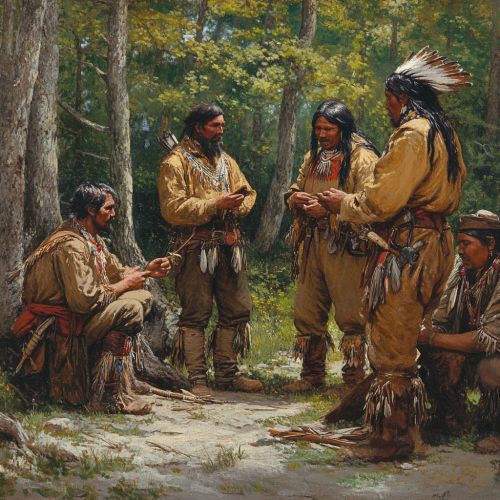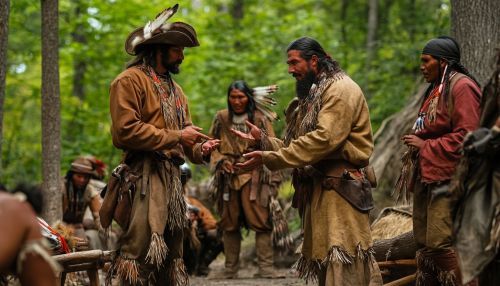Robert Stuart
Early Life and Background
Robert Stuart was born on February 19, 1785, in Callander, Scotland. He was the son of Charles Stuart and Christian McLeay. His father was a prominent figure in the local community, which afforded Robert a relatively comfortable upbringing. The Stuart family was known for their involvement in various commercial enterprises, which likely influenced Robert's later career choices.
Career in the Fur Trade
Initial Ventures
Robert Stuart's career in the fur trade began in earnest when he joined the Pacific Fur Company, an enterprise founded by John Jacob Astor in 1810. The company aimed to establish a fur trading post at the mouth of the Columbia River, in what is now Oregon. Stuart was part of the overland expedition led by Wilson Price Hunt, which sought to reach the Columbia River by traversing the continent.
The Overland Expedition
The overland expedition faced numerous challenges, including harsh weather, difficult terrain, and interactions with various Native American tribes. Despite these obstacles, Stuart and his companions managed to reach the Columbia River in 1812. This journey was significant as it provided valuable information about the western territories and established a viable route for future expeditions.


Establishment of Fort Astoria
Upon reaching the Columbia River, Stuart played a crucial role in the establishment of Fort Astoria, the first American-owned settlement on the Pacific coast. The fort served as a trading post and a base of operations for the Pacific Fur Company. Stuart's leadership and negotiation skills were instrumental in maintaining peaceful relations with the local Native American tribes, which was essential for the fort's survival and success.
The Return Journey and the Discovery of the South Pass
The Need for a New Route
In 1812, following the outbreak of the War of 1812 between the United States and Great Britain, the Pacific Fur Company faced significant threats from British interests in the region. Concerned about the security of Fort Astoria, Stuart and a small group of men embarked on a return journey to the eastern United States to seek assistance and supplies.
Discovery of the South Pass
During this return journey, Stuart and his party discovered the South Pass, a crucial mountain pass through the Rocky Mountains. The South Pass was a relatively easy route compared to other mountain passes, making it a vital discovery for future westward expansion. This pass later became a key segment of the Oregon Trail, facilitating the migration of thousands of settlers to the western United States.
Later Career and Contributions
Continued Involvement in the Fur Trade
After returning to the eastern United States, Stuart continued his involvement in the fur trade. He worked for the American Fur Company, another enterprise founded by John Jacob Astor, and played a significant role in expanding the company's operations in the western territories. Stuart's expertise and experience made him a valuable asset to the company.
Political and Civic Engagement
In addition to his work in the fur trade, Stuart was also active in political and civic affairs. He served as a delegate to the Michigan Territorial Council and was involved in various initiatives aimed at promoting the development and settlement of the western territories. His contributions to the early governance and infrastructure of these regions were significant.
Legacy and Impact
Robert Stuart's contributions to the exploration and settlement of the western United States are noteworthy. His discovery of the South Pass facilitated the westward migration that played a crucial role in the expansion of the United States. Additionally, his work in the fur trade helped establish important commercial networks and relationships with Native American tribes.
Stuart's legacy is also reflected in the various geographical features named in his honor, including the town of Stuart in Nebraska and the Stuart Range in Wyoming. His life and career serve as a testament to the challenges and opportunities of early American frontier life.
